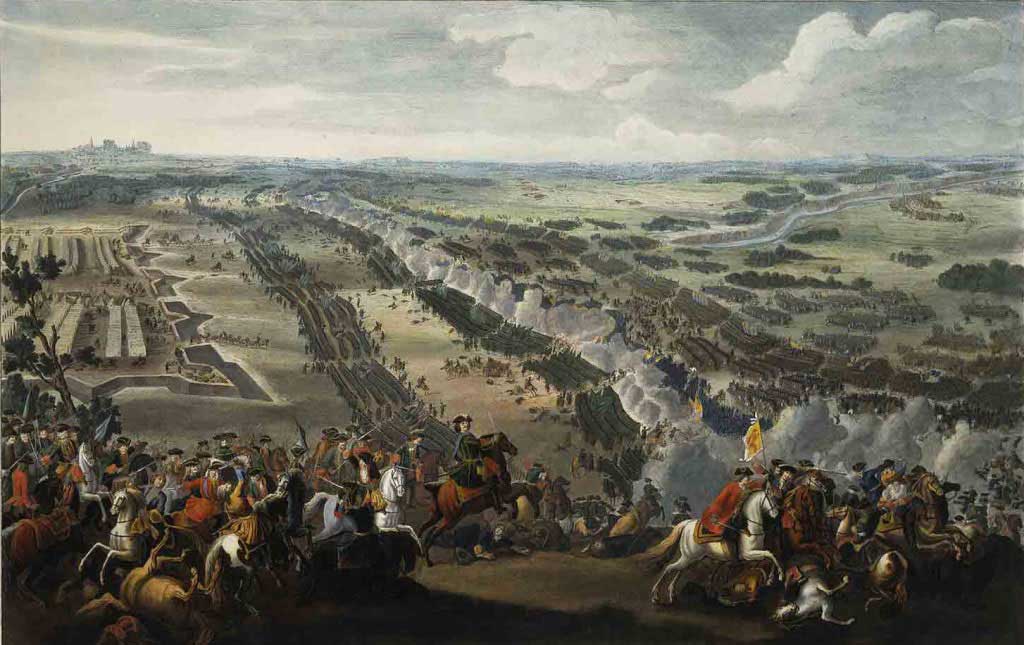1700-1721
The Great Northern War permanently changed European balance of power. Sweden was no longer an empire and it never recovered from it. Russia became the world’s new military power.

“The Battle of Poltava” by Denis Martens the Younger (1726)
Background
Peter the Great was determined to obtain ports that would link Russia to Western Europe. Sweden was the most powerful empire on the Baltic Sea at that time. The conflict was inevitable.
In 1700 Peter’s alliance with Denmark, Saxony and Poland declared war on the 18-year old Swedish king Charles XII. Most notable Russian commanders were Admiral Fyodor Apraksin and Field Marshal Boris Sheremetev.
Northern War
Russia earned its first defeat in 1700 at Narva. Charles XII’s 8,000 men attacked in a dense snowstorm and destroyed the Russian army of 34,000 men.
Battle of Poltava
In 1708 Charles XII crossed the Russian border after fighting in Poland and the second phase of the war began.
Charles XII underestimated the Russian winter and by the time the two armies met in 1709 at Poltava, cold, hunger and disease had already destroyed most of the Swedish army. Peter’s army outnumbered the Swedes 3 to 1 and Russia’s victory was total.
Results
The Northern War continued for another 11 years and was concluded with the Nystad Peace Treaty (Uusikaupunki) (1721). Russia retained all of its newly conquered Swedish territories, except Finland.
Great Northern War
1700-1721
The Great Northern War permanently changed European balance of power. Sweden was no longer an empire and it never recovered from it. Russia became the world’s new military power.
“The Battle of Poltava” by Denis Martens the Younger (1726)
Background
Peter the Great was determined to obtain ports that would link Russia to Western Europe. Sweden was the most powerful empire on the Baltic Sea at that time. The conflict was inevitable.
In 1700 Peter’s alliance with Denmark, Saxony and Poland declared war on the 18-year old Swedish king Charles XII. Most notable Russian commanders were Admiral Fyodor Apraksin and Field Marshal Boris Sheremetev.
Northern War
Russia earned its first defeat in 1700 at Narva. Charles XII’s 8,000 men attacked in a dense snowstorm and destroyed the Russian army of 34,000 men.
Battle of Poltava
In 1708 Charles XII crossed the Russian border after fighting in Poland and the second phase of the war began.
Charles XII underestimated the Russian winter and by the time the two armies met in 1709 at Poltava, cold, hunger and disease had already destroyed most of the Swedish army. Peter’s army outnumbered the Swedes 3 to 1 and Russia’s victory was total.
Results
The Northern War continued for another 11 years and was concluded with the Nystad Peace Treaty (Uusikaupunki) (1721). Russia retained all of its newly conquered Swedish territories, except Finland.
Fyodor Apraksin